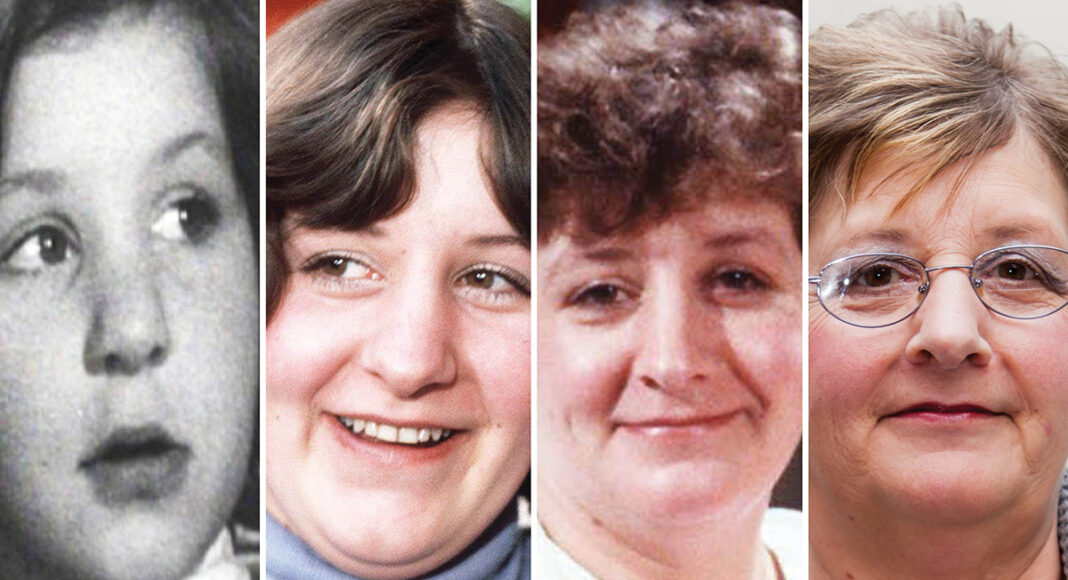It’s one of the most extraordinary uses of the medium since the movies began to talk. In 1963, Michael Apted was a young researcher with the British TV documentary series World In Action, working on an episode called 7 Up, in which some dozen 7-year-old grammar schoolchildren from various backgrounds were interviewed about their lives and dreams. Seven years later, Apted, now a director in his own right, decided to revisit the kids as teenagers to see how their lives were shaping up.
He has filmed them every seven years since, producing a series of ever more galvanizing documentaries about real life as lived by real people. Now, at age 63, the original group of “kids” are back in the ninth installment, 63 Up.
Apted himself is now 78, and while his prolific film directing career includes Coal Miner’s Daughter, Gorillas In the Mist, and Chasing Mavericks (filmed in Santa Cruz), the nine films in what’s now called the “Up Series” are a major part of his legacy. Watching these exuberant kids grow up onscreen, unscripted, as their ideas about life and themselves do or do not pan out over the years has become a unique testament to time, regret, resilience, and the profound courage required to get through everyday life.
And increasingly, as the subjects age, it’s not for the faint-hearted. There’s an elegiac undercurrent in 63 Up. Several of the interviewees are coping with the death of a parent, and trying to reconcile those feeling with how they interact with their own children or grandchildren. Some are facing health issues themselves. One of the original interview subjects has died.
Understandably, at this point in their lives, many of their remarks are more reflective. “I want my life to have meant something,” muses Peter Davies. Lambasted in film reviews as a radical troublemaker for anti-Thatcher remarks at age 21, he pulled out of the series from age 28 until 56, but returned to promote his folk trio and display a newfound mellowness.
Gregarious East-Ender Tony Walker is philosophical about having to give up his childhood dream of becoming a jockey to drive a cab for a living. But he gets a kick out of the modicum of fame the series has brought him—including a tiny movie role. Andrew Brackfield opines that the class system is as rigid as ever in Britain, but now it’s based on “fame and achievement,” not wealth and blood.
Jackie Bassett doubles down on issues she raised with Apted in the last installment, about the way women are represented in the series. The girls, she says, were only ever asked what she calls “domestic questions” about boys and marriage, while the boys were asked their opinions on politics and careers. Apted has since expressed regret that more girls were not included in the film at the outset (he didn’t direct the first movie, but he did select the children to be interviewed), saying that, back then, no one ever thought about women having careers. (Tellingly, however, it’s only the male subjects he quizzes about Brexit this time around.)
Many interviewees find ways to repay their good fortune: teachers, at home and abroad; the barrister who heads up the charity for Bulgaria; the beloved children’s librarian in an underserved and diverse neighborhood who sees her job threatened by budget cuts; the formerly homeless wanderer who’s clawed his way onto a town council as a Liberal Democrat. With so many backstories to fill in, the movie runs to nearly three hours, yet it’s an invaluable portrait of humanity in transition.
63 UP
*** (out of four)
Directed by Michael Apted. A BritBox release. Not rated. 150 minutes.














